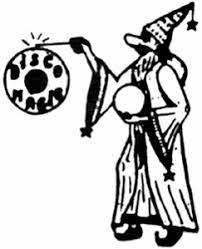In past newsletters, we have covered what makes a song an Italo Disco song and we have outlined the way Baby Records shaped the European music industry.
Another leading player in the Italo Disco scene was Severo Lombardoni with his Discomagic Records. A classically trained musician who played the harmonica, the guitar, and even the trombone, he opened a record store in 1974 and a wholesale record store in Milan in 1977.
In 1979, he established Discomagic. Compared to Baby Records, it was the more experimental leading label in the realm of Italo Disco. Just consider this anecdote: Discomagic right-hand man Rino Facchinetti tells author Francesco Cataldo Verrina that one afternoon, Francesco Bontempi, also known as “Lee Marrow,” showed up at Discomagic and he was fuming because a competitor had passed on a track of his that they deemed too “old-school Italo”, thus not fit for sale. That track was what would become “The rhythm of the night,” which represents one of the seminal works of the then-nascent Eurodance genre, which owes a lot to Italo Disco.
At the height of its tenure, Discomagic would make five or six records PER DAY, sending up to 60 records a month to press. International labels were much slower, and, according to Paul Mazzolini (also known as Gazebo), they lacked awareness of the business opportunity Italo represented. In turn, the whole Italo machine was able to write, record, press and distribute the records independently, with an infrastructure that could move through the entire process in a few days. “A spreadsheet circulated in the Italo Disco community forum on Discogs a decade ago calculated an approximate figure of 7,000-10,000 titles released between 1982 and 1988 in Italy alone classified as Italo Disco,” writes Flora Pitrolo in the essay Gimmick! Italo Disco, Copy and Consumption
Lombardoni also doubled as a music publisher. Notable composers collaborating with him include: Pierluigi Giombini, Davide Zambelli’s producer, Paolo Pelandi, Checco Bontempi, Domenico Ricchini, Roberto Zanetti and Massimo Berti. The best known credits include Dolce vita by Ryan Paris (with lyrics by Gazebo!) Happy Children by P. Lion, Don't Cry Tonight by Savage, Orient Express and Last Summer by Wish Key, Shanghai and Sayonara by Lee Marrow/Francesco Bontempi, all published between 1983 and 1985, and Ride On Time by Black Box published 1989. Ride on Time was a great international success, and charted in the UK for six weeks.
At the very early stages of his business (and perhaps also thanks to his experience as a record store owner) Lonbardoni understood that the music landscape was changing. He capitalized on the younger generation of Italian music producers that were heavily relying on the use of the now accessible and affordable synthesizers to make records at home rather than in expensive studios. You will never hear an orchestral element in a Discomagic production - unless it’s sampled.
In the early 80s Lombardoni specifically targeted the DJ community (both has producers and consumers) who would be his bridge to radio play as well as the clubs, an undertaking that the previous 70s “disco” community failed to accomplish. Furthermore he was also creating “brand loyalty” with very young music artists and consumers that would become the future radio programmers, club owners and TV hosts.
One or the most interesting aspect of Discomagic is how the label stretched its relevance over time, well beyond its years of operation. Once the revival of its most mainstream tracks plateaued, fans started digging deeper in the label’s catalogue to discover some incredible gems; stuff that probably Lombardoni himself was not even that interested in but pressed it anyway to hold market monopoly and supremacy. Some of these track include: Rose’s Magic Carillon, Cristalli Liquidi’s Volevi Una Hit and Hildegard’s Satanicamente.
Lombardoni’s approach to his label management style was quite known in the industry. He was a shrewd business who quite “conservative” when it came to share profits with artists. It was another era but his vision does tune to a more modern way of labels today (specifically the global music groups) try to amass as many songs and artists as they can - it’s like buying at wholesale. The more you buy, the less you pay for it, the higher the chance for a return on investment.
Eventually, Discomagic folded into ZYX Music, the German-born label founded by the one Bernhard Mikulski who not only coined the term “Italo Disco” in the first place, but who also distributed Italy’s sappiest, most melodic pop in Continental and Northern Europe. Interestingly, ZYX also distributes the works of the likes of Gigi D’Agostino and Eiffel 65 in the same area. Such acquisition proved, indeed, to be a full-circle moment. Just like Mikulski identified those sounds as being part of a particular genre, so did he eventually bring them under his wing after local ventures folded.





